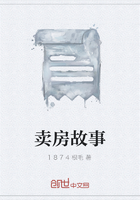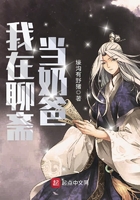This is, perhaps, the principal characteristic, on which, among modern nations, we bestow the epithets of civilized or of polished. But we have seen, that it did not accompany the progress of arts among the Greeks, nor keep pace with the advancement of policy, literature, and philosophy. it did not await the returns of learning and politeness among the moderns;it was found in early periods of our history, and distinguished, perhaps, more than at present, the manners of ages otherwise rude and undisciplined. A King of France, prisoner in the hands of his enemies, was treated, about four hundred years ago, with as much distinction and courtesy, as a crowned head, in the like circumstances, could possibly expect in this age of politeness.(3*) The Prince of Conde, defeated and taken in the battle of Dreux, slept at night in the same bed with his enemy the Duke of Guise.(4*)If the moral of popular traditions, and the taste of fabulous legends, which are the production or entertainment of particular ages, are likewise sure indications of their notions and characters, we may presume, that the foundation of what is now held to be the law of war, and of nations, was laid in the manners of Europe, together with the sentiments which are expressed in the tales of chivalry, and of gallantry. Our system of war differs not more from that of the Greeks, than the favourite characters of our early romance differed from those of the iliad, and of every ancient poem. The hero of the Greek fable, endued with superior force, courage, and address, takes every advantage of an enemy, to kill with safety to himself; and actuated by a desire of spoil, or by a principle of revenge, is never stayed in his progress by interruptions of remorse or compassion. Homer, who, of all poets, knew best how to exhibit the emotions of a vehement affection, seldom attempts to excite commiseration. Hector falls unpitied, and his body is insulted by every Greek.
Our modern fable, or romance, on the contrary, generally couples an object of pity, weak, oppressed, and defenceless, with an object of admiration, brave, generous, and victorious; or sends the hero abroad in search of mere danger, and of occasions to prove his valour. Charged with the maxims of a refined courtesy, to be observed even towards an enemy; and of a scrupulous honour, which will not suffer him to take any advantages by artifice or surprise; indifferent to spoil, he contends only for renown, and employs his valour to rescue the distressed, and to protect the innocent. If victorious, he is made to rise above nature as much in his generosity and gentleness, as in his military prowess and valour.
It may be difficult, upon stating this contrast between the system of ancient and modern fable, to assign, among nations equally rude, equally addicted to war, and equally fond of military glory, the origin of apprehensions on the point of honour, so different, and so opposite. The hero of Greek poetry proceeds on the maxims of animosity and hostile passion. His maxims in war are like those which prevail in the woods of America. They require him to be brave, but they allow him to practise against his enemy every sort of deception. The hero of modern romance professes a contempt of stratagem, as well as of danger, and unites in the same person, characters and dispositions seemingly opposite; ferocity with gentleness, and the love of blood with sentiments of tenderness and pity.
The system of chivalry, when completely formed, proceeded on a marvellous respect and veneration to the fair ***, on forms of combat established, and on a supposed junction of the heroic and sanctified character. The formalities of the duel, and a kind of judicial challenge, were known among the ancient Celtic nations of Europe. The Germans, even in their native forests, paid a kind of devotion to the female ***. The Christian religion injoined meekness and compassion to barbarous ages. These different principles combined together, may have served as the foundation of a system, in which courage was directed by religion and love, and the warlike and gentle were united together. When the characters of the hero and the saint were mixed, the mild spirit of Christianity, though often turned into venom by the bigotry of opposite parties, though it could not always subdue the ferocity of the warrior, nor suppress the admiration of courage and force, may have confirmed the apprehensions of men in what was to be held meritorious and splendid in the conduct of their quarrels.
In the early and traditionary history of the Greeks and the Romans, rapes were assigned as the most frequent occasions of war; and the ***es were, no doubt, at all times, equally important to each other. The enthusiasm of love is most powerful in the neighbourhood of Asia and Africa; and beauty, as a possession, was probably more valued by the countrymen of Homer, than it was by those of Amadis de Gaul, or by the authors of modern gallantry. 'What wonder, says the old Priam, when Helen appeared, 'that nations should contend for the possession of so much beauty?' This beauty, indeed, was possessed by different lovers; a subject on which the modern hero had many refinements, and seemed to soar in the clouds. He adored at a respectful distance, and employed his valour to captivate the admiration, not to gain the possession of his mistress. A cold and unconquerable chastity was set up, as an idol to be worshipped, in the toils, the sufferings, and the combats of the hero and the lover.
The feudal establishments, by the high rank to which they elevated certain families, no doubt greatly favoured this romantic system. Not only the lustre of a noble descent, but the stately castle beset with battlements and towers, served to inflame the imagination, and create a veneration for the daughter and the sister of gallant chiefs, whose point of honour it was to be inaccessible and chaste, and who could perceive no merit but that of the high-minded and the brave, nor be approached in any other accents than those of gentleness and respect.
What was originally singular in these apprehensions, was, by the writer of romance, turned to extravagance; and under the title of chivalry was offered as a model of conduct, even in common affairs: the fortunes of nations were directed by gallantry; and human life, on its greatest occasions, became a scene of affectation and folly. Warriors went forth to realize the legends they had studied; princes and leaders of armies dedicated their most serious exploits to a real or to a fancied mistress.
But whatever was the origin of notions, often so lofty and so ridiculous, we cannot doubt of their lasting effects on our manners. The point of honour, the prevalence of gallantry in our conversations, and on our theatres, many of the opinions which the vulgar apply even to the conduct of war; their notion, that the leader of an army, being offered battle upon equal terms, is dishonoured by declining it, are undoubtedly remains of this antiquated system: and chivalry, uniting with the genius of our policy, has probably suggested those peculiarities in the law of nations, by which modern states are distinguished from the ancient. And if our rule in measuring degrees of politeness and civilization is to be taken from hence, or from the advancement of commercial arts, we shall be found to have greatly excelled any of the celebrated nations of antiquity.
NOTES:
1. Plutarch, in the Life of Agesilaus.
2. Thucydides, lib. 4. -- Aristophanes.
3. Hume's History of England.
4. Davila.















